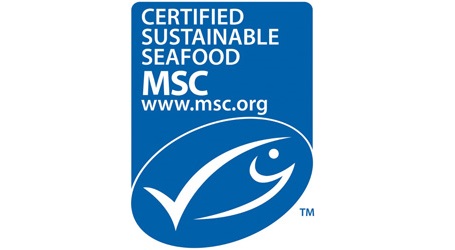Two new reports from the Marine Stewardship Council (MSC) show the progress being made to secure the future of the world’s oceans, and a plentiful supply of seafood for generations to come.
With 29 per cent of the world’s oceans currently overfished, the reports show how commitments by seafood producers, retailers and consumers are delivering lasting improvements to the sustainability of marine ecosystems, fish stocks and fishing communities.
Ten per cent of global wild caught seafood now comes from fisheries engaged in the MSC’s rigorous, scientific program for ensuring the long-term sustainability of marine ecosystems. Since 1999 more than 220 fisheries have undergone independent assessment of their environmental sustainability.
Those achieving MSC certification have made hundreds (575) of improvements to their fishing practices, including measures to reduce unwanted bycatch of endangered species, restore habitat and improve scientific understanding of marine ecosystems. MSC-certified fisheries have also committed to deliver a further 600 improvements by 2020.
As a result of increased consumer demand and greater commitment to sustainability by the fishing industry and retailers, the number of MSC-labelled products has more than doubled over the past five years. In 2013-14 the retail market value of sustainable seafood carrying the MSC ecolabel reached $4.8 billion, an increase of 118 per cent since 2009. More than 23,000 products from MSC certified fisheries were available in over 100 countries, a tenfold increase since 2009.
The MSC’s Global Impacts Report 2014 and Annual Report 2013-14 show improvements to marine environments being delivered by fisheries engaged in the MSC certification program. These changes are often incentivised by increased market demand and, in some cases, a price premium for sustainable seafood.
Seafood accounts for almost 17 per cent of the global population’s intake of animal protein and supports the livelihoods of around 10 per cent of the world’s population3. Safeguarding the world’s oceans is essential if we are to maintain healthy fish populations, economies and ecosystems.
Rupert Howes, Chief Executive for the MSC said: “The MSC’s vision is for the world’s oceans to be teeming with life – today, tomorrow and for future generations. These reports provide evidence that the leadership of our partners is driving real and lasting change in the way our oceans are fished. Stock status of MSC certified fisheries continue to improve, bycatch of unwanted species and seabirds continues to decline and a myriad of wider management improvements have been delivered. Everyone can help to support this positive change by choosing MSC certified sustainable seafood.”
Other highlights from the MSC’s Global Impacts Report 2014 and Annual Report 2013-14 include:
- Improving performance of MSC fisheries: The sustainability performance of certified fisheries is increasing. The proportion of fisheries in the MSC program with habitat and ecosystem impacts at or above best practice has increased from 71 per cent in 2009 to 82 per cent in 2013. At the same time, the proportion of fisheries in the MSC program with stocks that are maintained at or above maximum sustainable levels has increased from 80 per cent in 2009 to 94 per cent in 2013.
- Increasing consumer confidence: On average, there has been an 11 per cent increase in seafood consumers purchasing products carrying the MSC ecolabel since 2010. Seafood consumers can also be assured that the MSC seafood is correctly labelled. DNA testing of 320 samples of MSC-ecolabelled products from 15 counties continues to show that more than 99 per cent are correctly labelled.
- Academic studies reveal price premiums: Independent academic studies4 of retail sales have shown that MSC certification of some species draws a price premium. This includes retail price increases of 14 per cent for MSC-certified Alaska pollock; 10 per cent for MSC-certified haddock and 13 per cent for MSC-certified whitefish. The MSC certification of the Vietnam Ben Tre clam fishery opened up new markets in Europe and North America, bringing a 30 to 50 per cent price increase.
- Increasing access to sustainable seafood: Fisheries from 34 counties and supply-chain businesses from 66 countries are now engaged in the MSC program. For example, in Canada over 60 per cent of fisheries are either MSC certified or in assessment to become certified, and 65 per cent of all tuna caught in Fiji is now harvested by MSC-certified fisheries.
- Enhanced engagement strategy for developing world fisheries: In February 2014, the MSC Board of Trustees adopted an enhanced engagement strategy to help developing world fisheries achieve MSC certification through Fishery Improvement Projects (FIPs).
- The South Africa hake fishery which has implemented changes to secure the long-term future of the fishing economy and environment. This has included measures leading to a 90 per cent reduction in seabird mortalities, including a 99 per cent reduction in albatross bycatch, since 20095.
- The Patagonian and Antarctic toothfish, more commonly known as Chilean sea bass. These fish were widely regarded as overfished, at-risk species a few years ago. Toothfish fisheries have made dramatic turnarounds including reduction of bycatch of seabirds from tens of thousands to near zero and 100 per cent observer overage on vessels to ensure compliance with management regulations to prevent illegal catches and overfishing.
- The New Zealand hoki western stock is considered to be fully rebuilt and both stocks are now considered to be within sustainable limits. The fishery has seen the population of New Zealand hoki stocks more than double since its first certification in 2001.
- The Oregon pink shrimp fishery has put in place an annual monitoring and reporting program in order to be able to model stock and implement management approaches which consider population dynamics. This catch per unit of effort has increased by almost 130 per cent since the stock was initially certified in 2007.
- The Fiji Tuna Boat Owners Association has initiated a plan to reduce bycatch of sharks during fishing. This includes the prohibition of fishing techniques harmful to sharks and use of small circular hooks.

